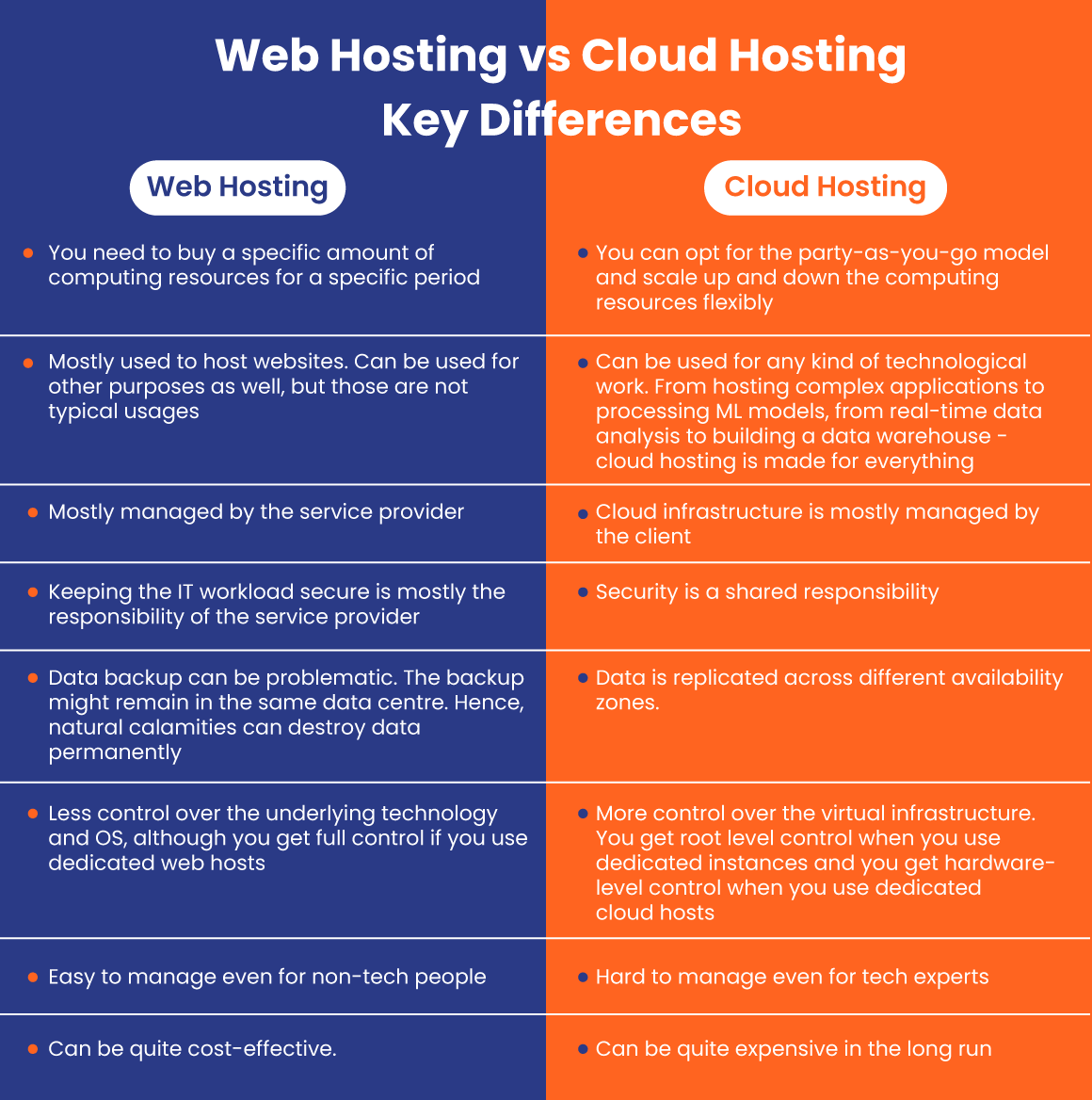Understanding the Difference Between Web Hosting and Cloud Hosting
When it comes to creating a website or hosting your online projects, the terms web hosting and cloud hosting are often used interchangeably. However, there are key differences between the two that can impact your website’s performance and scalability. In this article, we will break down the distinctions between web hosting and cloud hosting to help you make an informed decision for your online presence.
What is Web Hosting?
Web hosting involves renting space on a physical server to store your website files and data. These servers are typically located in data centers and are connected to the internet, allowing users to access your website. Web hosting services come in various forms, such as shared hosting, dedicated hosting, and virtual private servers (VPS).
In a shared hosting environment, multiple websites share resources on the same server. This can lead to slower loading times and potential security risks if one website experiences a sudden surge in traffic or a security breach. Dedicated hosting, on the other hand, provides you with your own server, offering better performance and security but at a higher cost. VPS hosting offers a middle ground, giving you a virtual dedicated server within a shared environment.
What is Cloud Hosting?
Cloud hosting, on the other hand, utilizes a network of remote servers to distribute resources and store data. This network is known as the cloud, and it enables users to access resources on-demand and scale their websites based on traffic fluctuations. Cloud hosting offers high availability, redundancy, and scalability, making it an ideal choice for websites that experience unpredictable traffic patterns.
With cloud hosting, your website’s data is stored across multiple servers, reducing the risk of downtime due to server failures. In case one server goes down, another server in the network can pick up the slack, ensuring that your website remains online and accessible to visitors. Additionally, cloud hosting providers often charge based on usage, allowing you to pay for only the resources you consume.
Key Differences Between Web Hosting and Cloud Hosting
- Scalability: Web hosting limits your scalability options since you are bound by the resources of a single server. In contrast, cloud hosting allows you to scale resources up or down based on your needs, ensuring optimal performance at all times.
- Reliability: Cloud hosting offers greater reliability and uptime due to its redundant infrastructure and distributed network of servers. Web hosting, especially shared hosting, may experience downtime if the server encounters issues.
- Security: While both web hosting and cloud hosting can be secure, cloud hosting often provides additional security features such as firewalls, DDoS protection, and data encryption to safeguard your website and data.
Ultimately, the choice between web hosting and cloud hosting depends on your website’s specific requirements, budget, and expected traffic volume. If you have a small website with predictable traffic patterns, web hosting may be a cost-effective solution. However, if you have a high-traffic website that requires scalability, reliability, and security, cloud hosting is the way to go.
By understanding the differences between web hosting and cloud hosting, you can make an informed decision that aligns with your online goals and objectives. Whether you choose web hosting or cloud hosting, remember to research providers, compare features and pricing, and consider your long-term growth potential to ensure that your website runs smoothly and efficiently.
